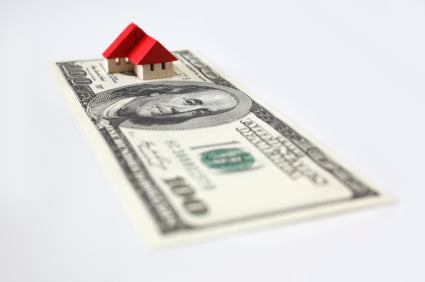Mortgage interest rates are at historic lows. If you have great credit with a FICO score above the mid-700’s, these days you’ll probably qualify for a rate below 5%. Despite the low rates, if you make a home purchase, should you pay points to lower your rate even more? Generally, my answer is “No.”
What is a Point?
A “point,” also known as a “discount point,” is a fee that costs you one percent of your loan amount, and will typically knock about 1/4 to 1/8 of a percent off your interest rate. It might take 4 points or more to bring your interest rate down one full percentage point.
While it might sound like a good idea to pay a one-time fee up front in order to “buy down” your interest rate, in reality, paying points is often a money-losing game.
Consider This Scenario
Say you apply for a $250,000, 30-year mortgage loan at a 5% fixed interest rate with no points, your monthly payments would be $1,342.
If you then wanted to pay one point to buy down your loan rate to 4.75%, it would cost you $2,500 (almost two months worth of mortgage payments, in this case). Your new payments would be $1,304, a savings of $38 a month or $456 a year.
If you divide the cost of that point by your yearly savings, you will find that it would take you about 5.5 years to reach the break-even month on the cost of that point.
So if you knew for certain that you were going to stay in your home for more than 5 and a half years, then buying the point might be worth it. You also, however, would have to be certain that you will not refinance your mortgage within those 5 years. Although you might think you wouldn’t want to refinance given how low your rate would be, you also can’t say for certain if what I call the “Dreaded Ds” (divorce, disease, disability, or death in the family) might occur, making it necessary for you to refinance.
Another Savings Option
However, a safer bet on yearly savings without having to worry about when you might move, is to use that $2,500 to lower your mortgage loan amount and instead take out a loan for $247,500 with monthly payments of $1,328, which would be $14 a month less than on a $250,000 loan, and a savings of more than $10,000 in interest paid over the life of the loan.
Advantage to Paying Points
I must admit, the one advantage to paying points on a home purchase is that they are tax deductible in the year you pay them. If you can get a seller to pay the points for you at closing, then it’s not money out of your pocket, you lower your rate, save interest over the life of your loan, and you can still take the tax deduction. Ideally, however, you personally shouldn’t pay for any discount points on a mortgage.
For more information on selecting the right mortgage, see my book, “Your First Home: The Smart Way to Get It and Keep It.” It has a lot of helpful tips even for those people purchasing their second or third home.










